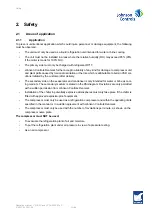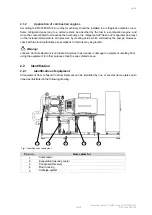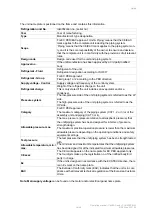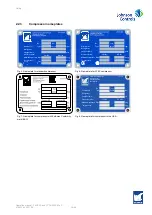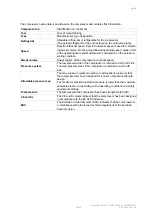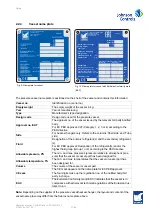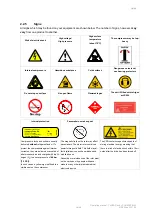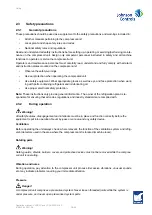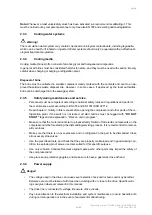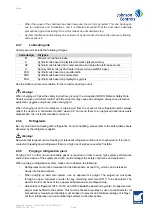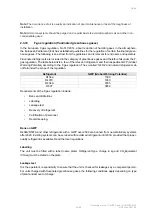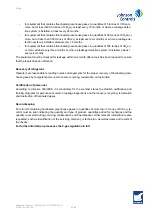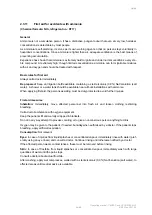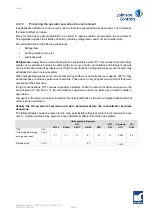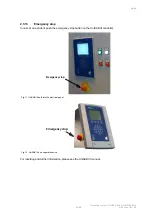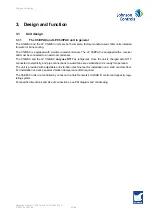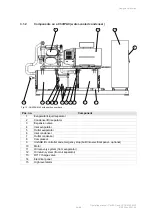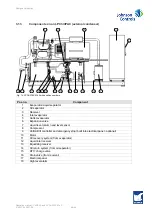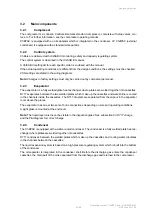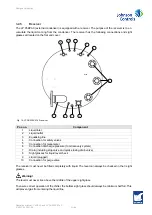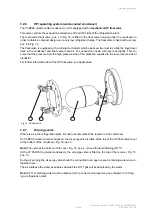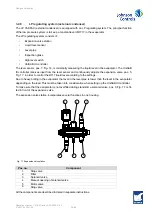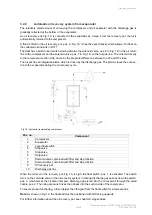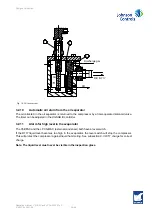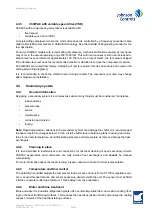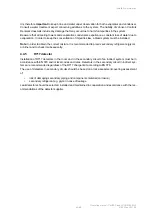
Operating manual - ChillPAC and LP ChillPAC Mk 3
010823 en 2021.06
25/68
2.3.12
Protecting the operator as well as the environment
Industrialisation affects our environment, and it is therefore essential that we do what we can to minimise
the harmful effect on nature.
Many countries have passed legislation in an effort to reduce pollution and preserve the environment.
This legislation applies to all fields of industry, including refrigeration, and must be complied with.
Pay extra attention to the following substances:
•
Refrigerants
•
Cooling media (brine, etc.)
•
Lubricating oils
Refrigerants
usually have a natural boiling point considerably below 0°C. This means that liquid refrig-
erants can be extremely harmful in contact with skin or eyes. High concentrations of refrigerant vapours
can be suffocating when they displace air. If high concentrations of refrigerant vapours are inhaled, they
will attack the human nervous system.
When halogenated gasses come into contact with open flame or hot surfaces (over approx. 300°C), they
will decompose to produce poisonous chemicals. These have a very pungent odour and will thus warn
personnel of their presence.
In high concentrations, R717 causes respiratory problems. When the amount of ammonia vapour in the
air is between 15 and 28 vol. %, the combination is explosive and can be ignited by an electric spark or
open flame.
Oil vapour in the ammonia vapour increases this risk significantly as the point of ignition falls below that
of the mixture ratio stated.
Usually the strong smell of ammonia will warn personnel before the concentration becomes
dangerous.
The following table shows the values for the max. permissible refrigerant content in air measured in vol-
ume %. Certain countries may, however, have official limits different from the ones stated.
Halogenated refrigerants
HFC
HCFC
Ammonia
CO
2
R134a
R404A
R407C
R410A
R507
R22
R717
R744
TWA
Time-weighted average
during a work week.
Unit
0.1
0.1
0.1
0.1
0.1
0.1
0.005
0.5
Vol. %
Warning smell
Vol. %
0.2
0.002

